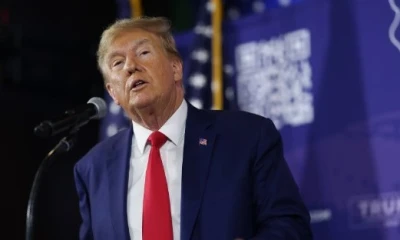Former US President Donald Trump sparked controversy with his remarks linking the death of Russian Opposition leader Alexei Navalny to his own legal battles in the United States. Trump, now a Republican presidential candidate, expressed on his Truth Social platform that Navalny’s demise made him more aware of issues in the US, labelling the nation as a “failing nation.”
Navalny, a prominent critic of Russian President Vladimir Putin, died in a prison on February 16, with the country’s officials claiming he fell unconscious after a walk and later died. Navalny’s widow suspects foul play, alleging poisoning and seeking accountability from Putin. However, Trump refrained from criticising Putin directly over Navalny’s death, instead focusing on perceived injustices within the US legal system.
Former South Carolina governor and Republican rival to Trump, Nikki Haley, disapproved of Trump’s response as unpatriotic, highlighting his failure to condemn Putin’s regime and praise Navalny’s courage. Haley’s remarks underscored growing dissent within the Republican party regarding Trump’s stance on Russia and human rights issues.
In contrast, US President Joe Biden directly blamed Putin for Navalny’s death, stating that Putin bears responsibility for the Opposition leader’s demise. Biden’s administration has taken a firm stance against Russia, accusing the Kremlin of human rights abuses and interference in global affairs.
The Kremlin has consistently denied involvement in Navalny’s death, dismissing Western allegations holding Putin responsible as unacceptable. Despite international pressure, Putin’s government maintains its innocence and asserts control over the narrative surrounding Navalny’s demise.
Trump’s comments reignited debates over US-Russian relations and human rights advocacy, with critics condemning his reluctance to confront Putin and support democratic principles. As the 2024 presidential race looms, Trump’s approach to foreign policy and authoritarian regimes is likely to remain a point of contention within the Republican party and among American voters.

















